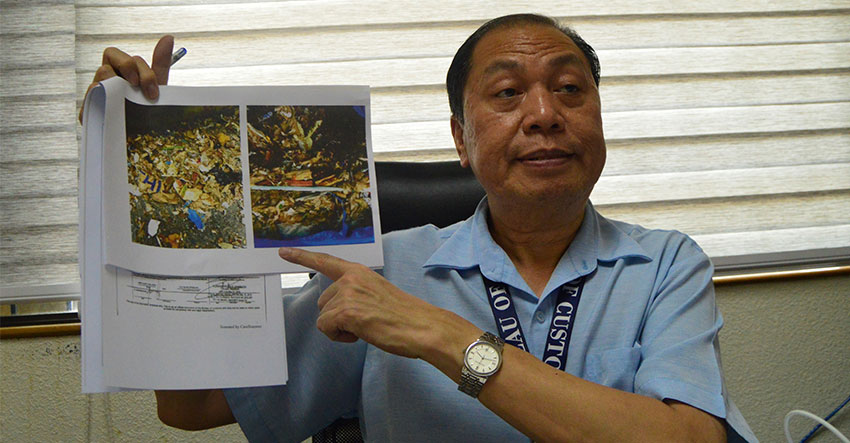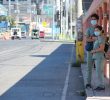
Bureau of Customs Northern Mindanao (BOC-10) district collector John Simon. (Jigger J. Jerusalem/davaotoday.com file photo)
CAGAYAN DE ORO CITY, Philippines — The outbreak of the novel coronavirus 2019 (Covid-19) in China that spread all over the world has played a factor in the delay of the shipment of the remaining 2,000 metric tons of trash back to South Korea, the Bureau of Customs in Northern Mindanao (BOC-10) said Wednesday.
According to John Simon, BOC-10 district collector, the container vans that will be used to contain the imported waste did not arrive as on time as operations in Chinese ports have temporarily been suspended during the past weeks because of the threat of Covid-19.
“The coronavirus has disrupted the international trade supply chain in China. Even the ports of entry there have set up quarantine for the ships, so there was a delay. The containers were also delayed in arriving to the country,” he said.
In fact, Simon said, the outbreak of the virus has also affected the revenue collection of the Customs as raw materials from China have not arrived as expected due to Covid-19.
“Our target for collection for February was P2 billion to P3 billion, but our actual revenue was only P1 billion,” he said, adding that if the threat of the coronavirus is not addressed right away, they would have to expect a lower tax collection for this year.
He said the container vans eventually arrived only after the Chinese ports authority relaxed the restrictions of movements of international cargo ships that arrive and leave China during the past few days.
“The effect of the coronavirus has a domino effect on the shipping line. In as much as we want to have the waste from South Korea reshipped immediately, the delay has slowed it down. But we have to wait, although the containers are again going to be available,” Simon said.
He said the Customs needs at least 200 or more container vans in transporting the imported trash.
What also helped hasten the rebagging is the mechanization of the repacking process, he said.
Simon said the Philippine Sinter Corp., a company based in Villanueva town, Misamis Oriental, has pitched in to fast track the rebagging by donating some equipment designed to make the work faster.
“In the past, the rebagging was a slow process since it was manual. Now, it is faster, more systematic,” he added.
Simon said they are hoping to finish the rebagging the remaining trash so it can be ready to be transported anytime this month.
It can be recalled that 6,500 metric tons of garbage arrived in Misamis Oriental in 2018.
In February last year, 1,500 metric tons of the 6,500 metric tons of garbage, composed of unsegregated plastic materials that arrived in October 2018, were returned to South Korea.
A total of 150 container vans, containing about 3,000 metric tons, were also shipped back to South Korea in January and February this year. (davaotoday.com)










